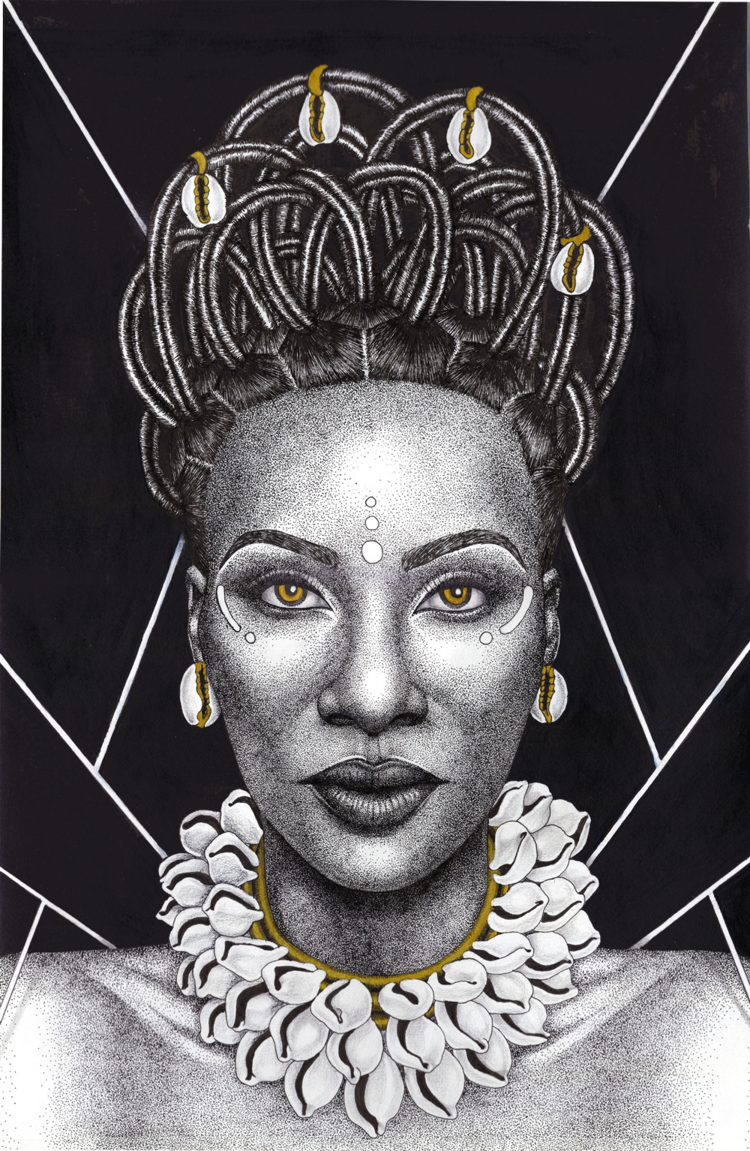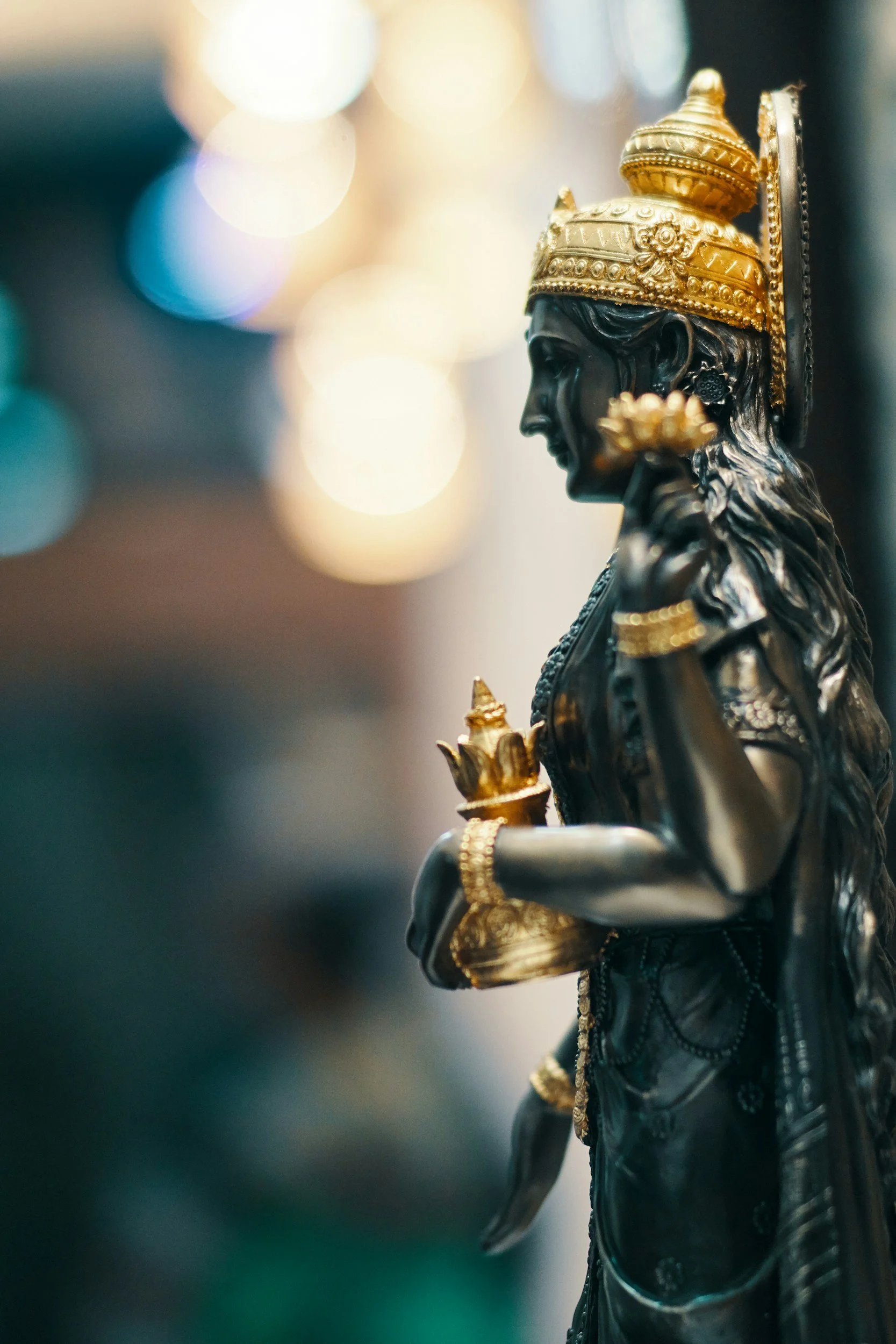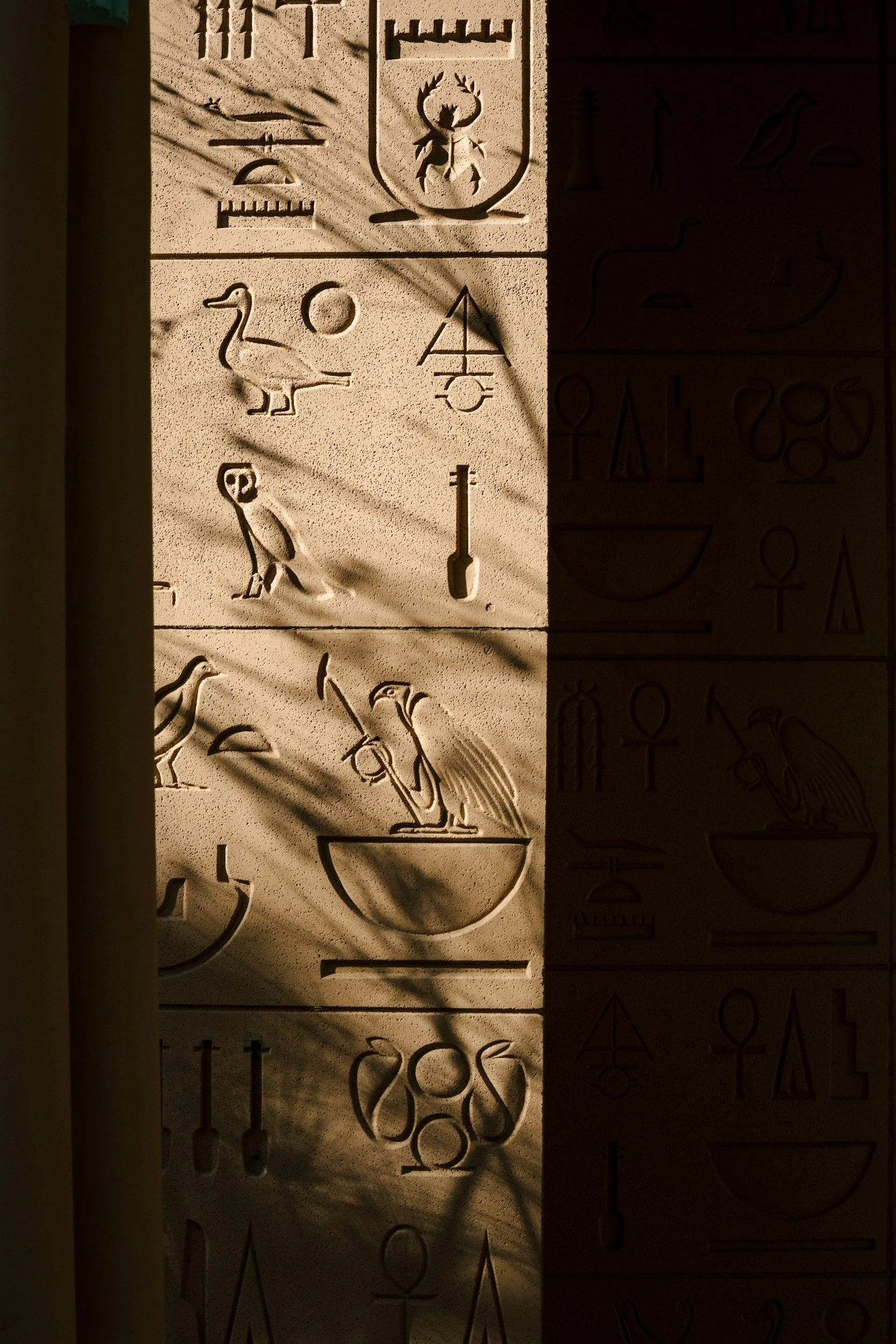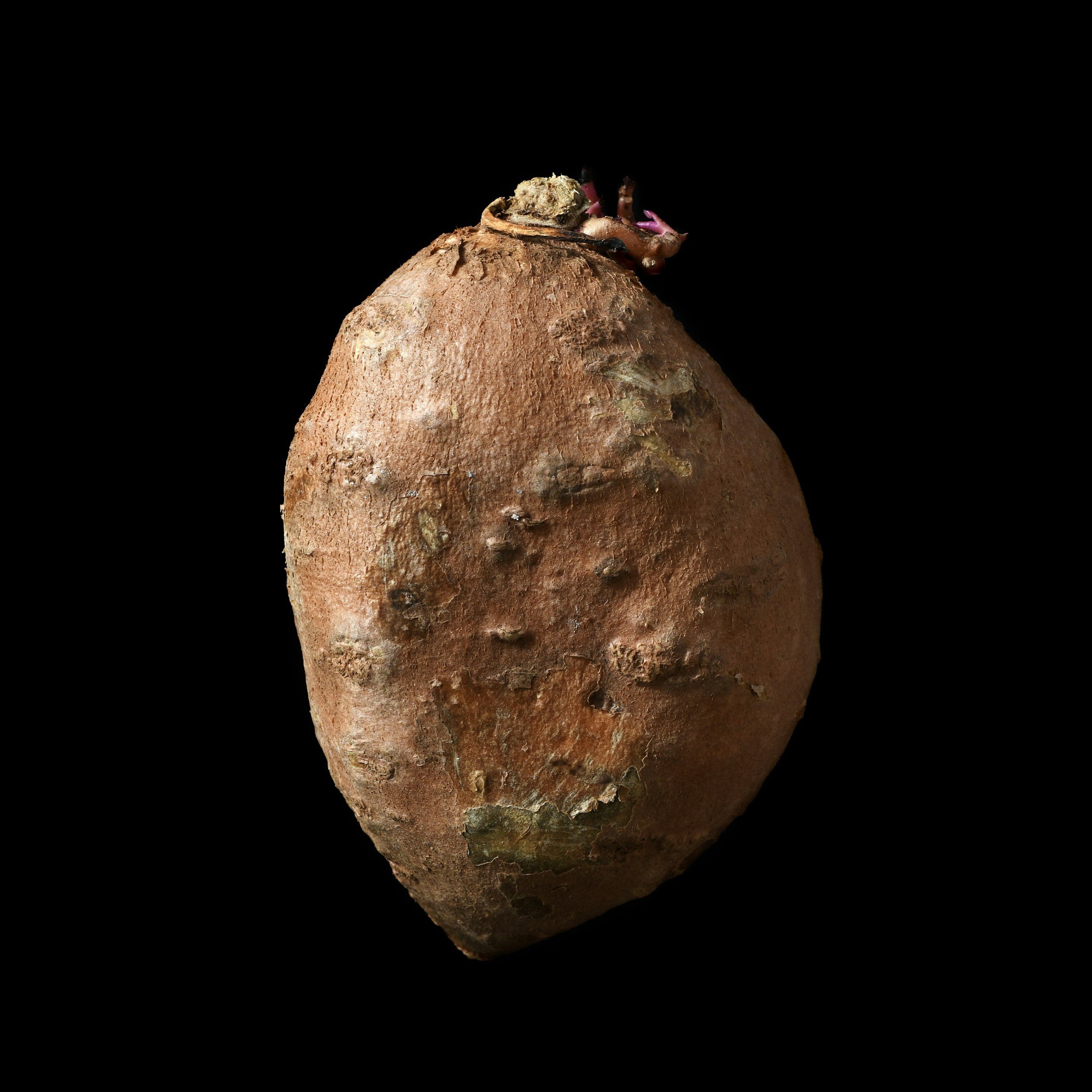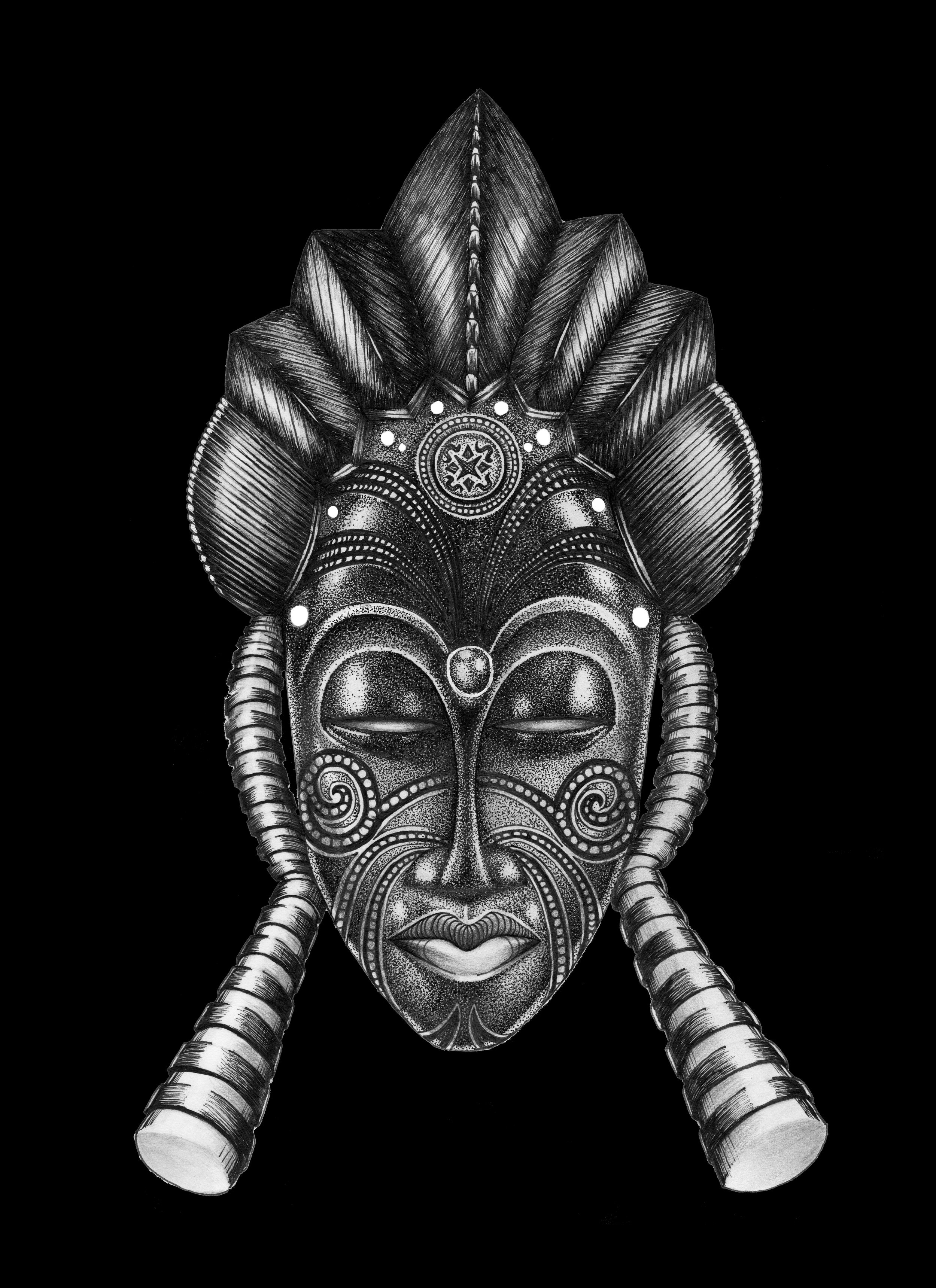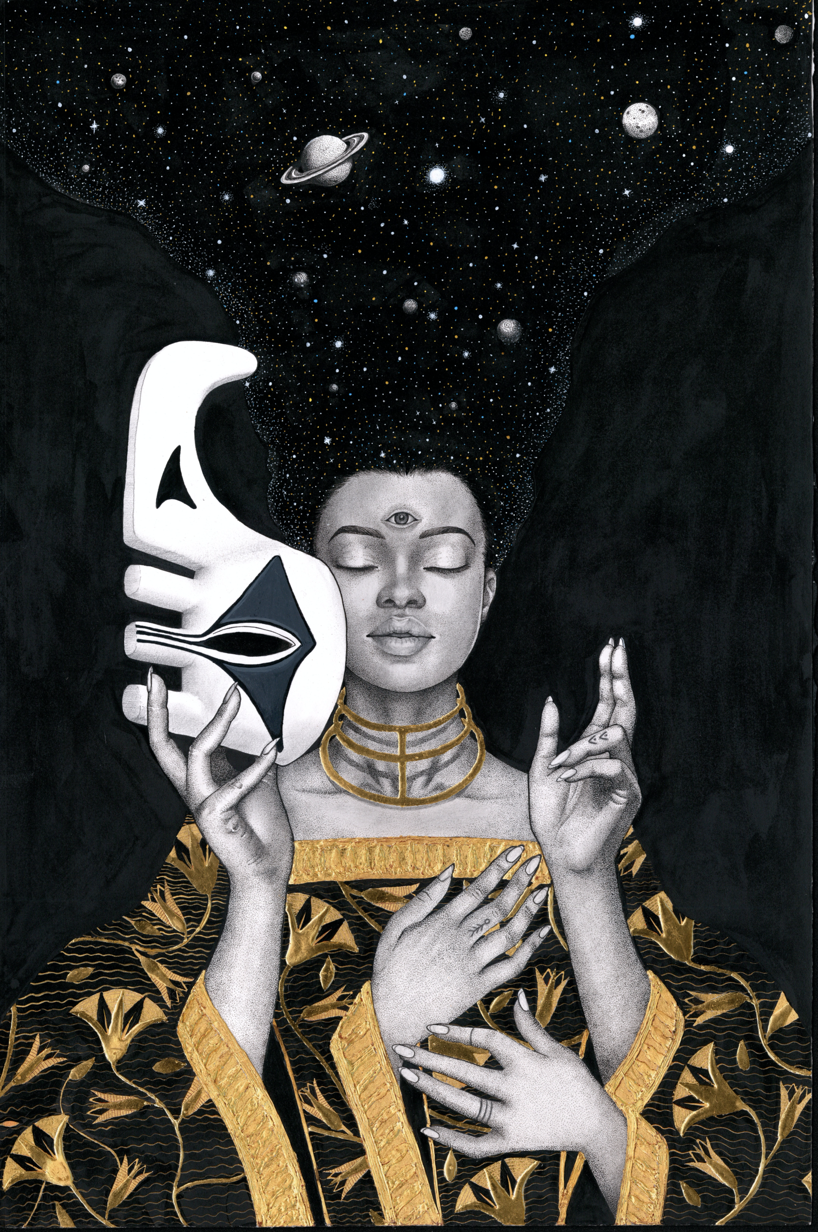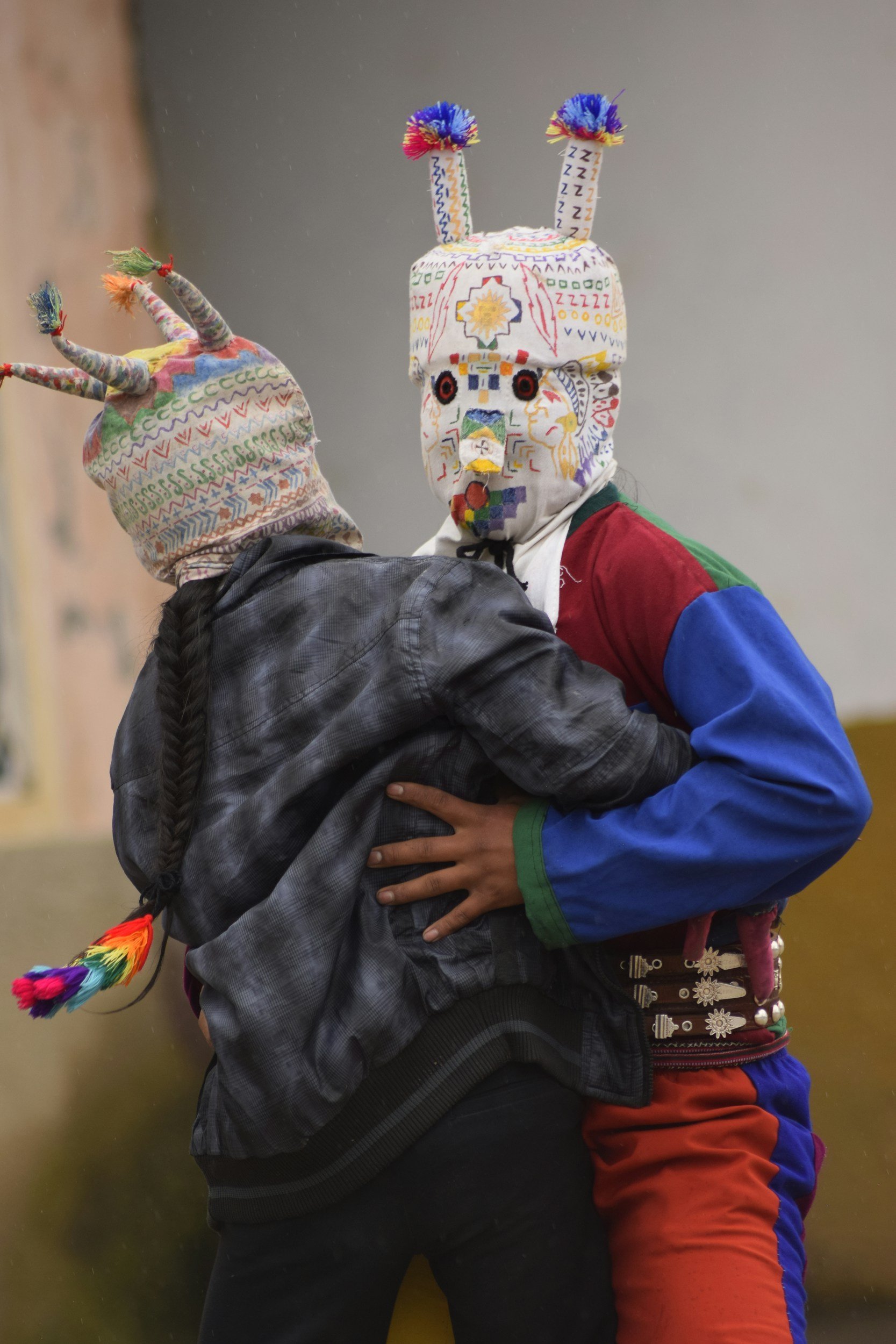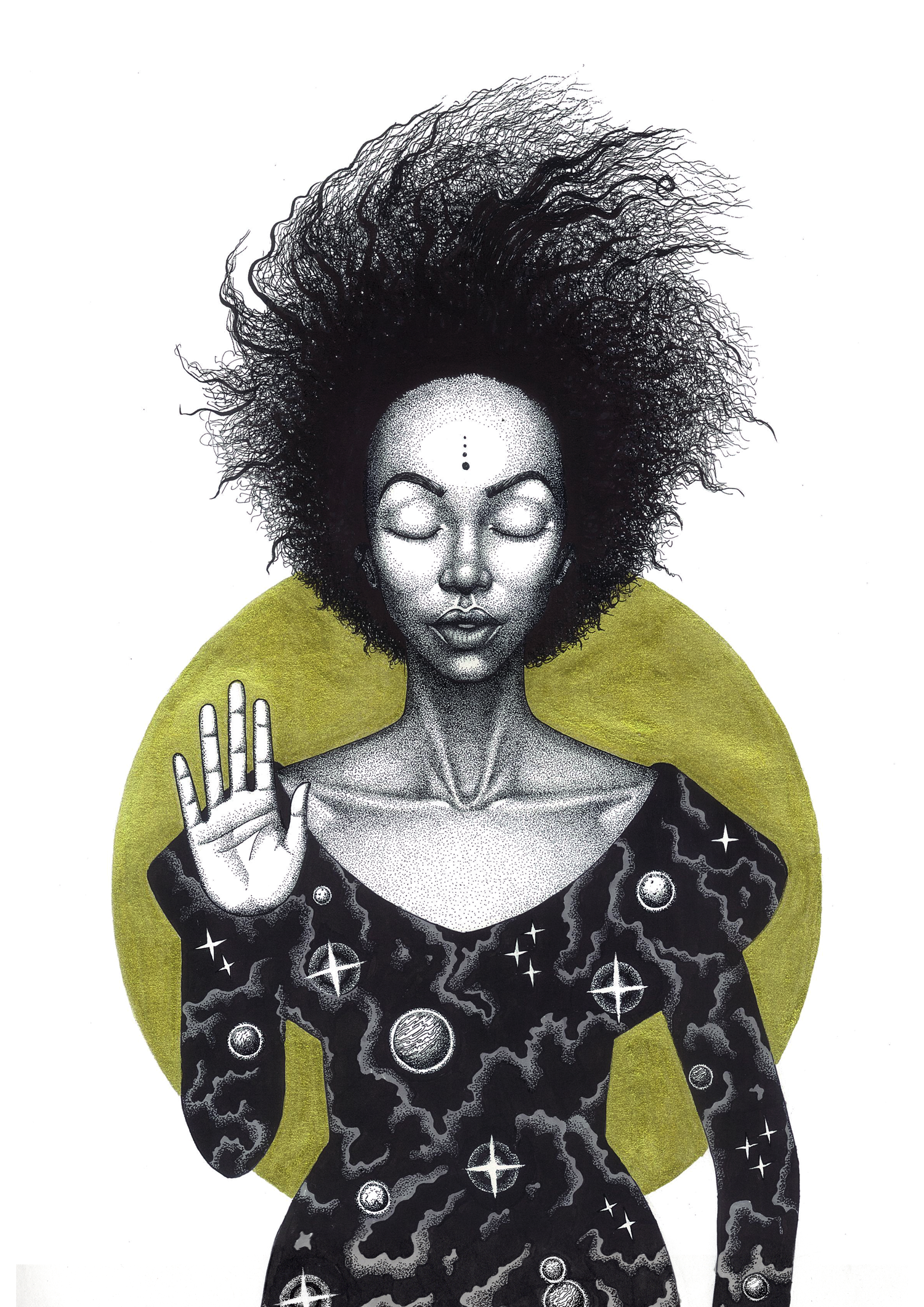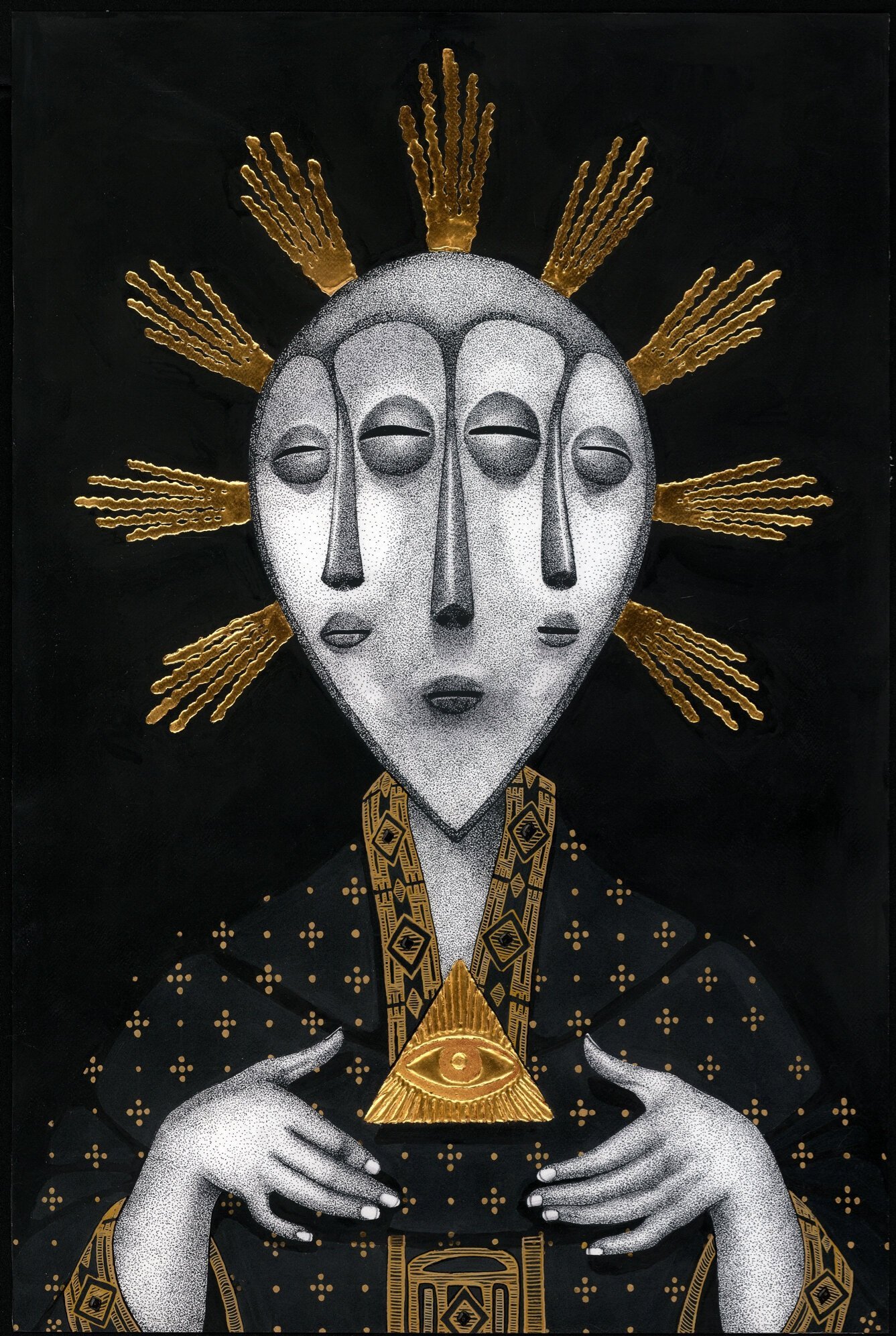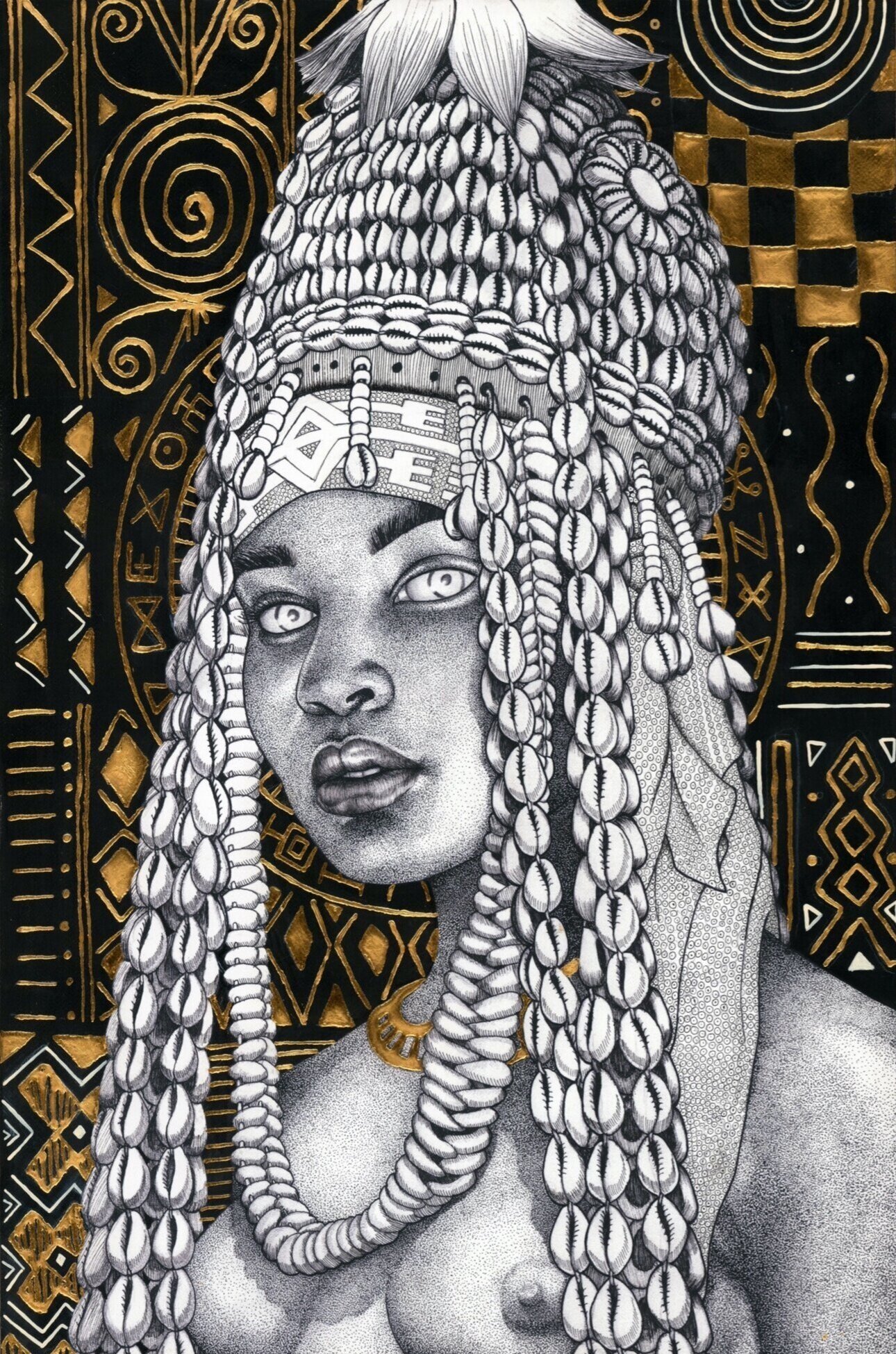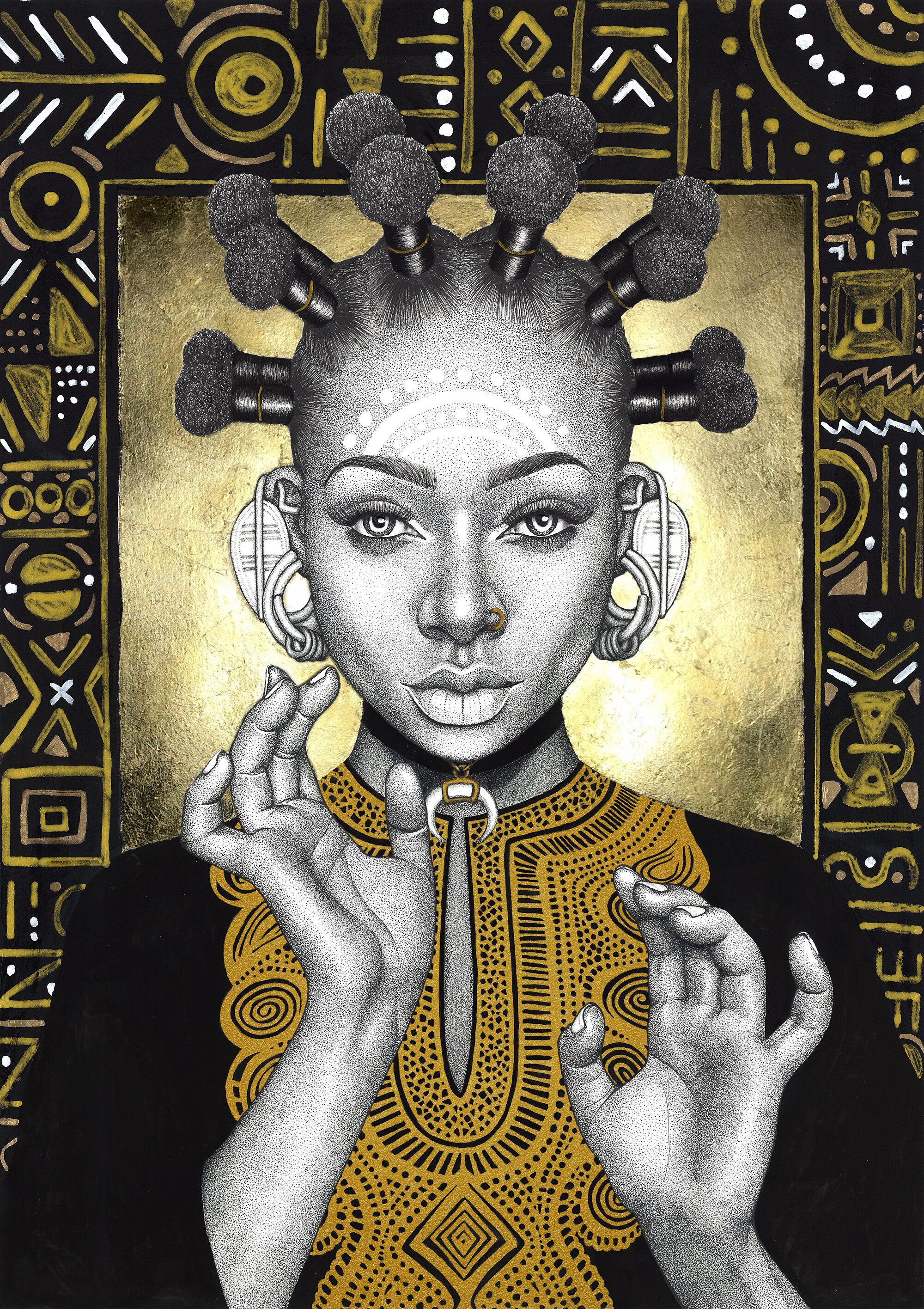Akwali Omumu: 10 Fascinating Facts About the Igbo Goddess of Fertility
CROWNED by Data Oruwari 11 x 16″, Ink on Paper
Akwali Omumu also known as Oda Omumu or Akwu Agali Ose amongst other names or titles such as Ekwu Omumu, Ogu Omumu, Udala Omumu, Oda Ndi Ichie or Odede Nsi, is the revered Igbo goddess of fertility. Her presence has always been deeply woven into the lives of Igbo people, symbolizing abundance, growth, and the continuation of life in all forms. In this blog post, we’ll highlight ten fascinating things that are true about the nature of this cosmic force and the important role she plays in Igbo families and communities.
10 Fascinating Facts About the Goddess of Fertility:
Sacred Maternal Figure & Goddess of Fertility: Akwali Omumu is revered as a divine feminine figure, embodying the essence of maternity and fertility. She is believed to bless women and families with the gift of conception, ensuring the continuity of generations within Igbo society. Her endowment of fertility extends beyond child birth, it goes on to ensure protection and provision to the gift of life she ensures, through an abundance of creativity, passion, love and happiness.
Guardian of Agriculture: Beyond human fertility, Akwali Omumu is also revered as the guardian of agricultural fertility. Farmers are advised to invoke her blessings to yield bountiful harvests, ensuring sustenance and prosperity for the community.
Symbol of Abundance: The imagery associated with Akwali Omumu often depicts her adorned with symbols of abundance, such as overflowing baskets of fruits and grains. Her presence is also invoked with eggs, clay or mud mounds and anthills. These symbols represent her role in bestowing prosperity and abundance upon her devotees.
Ceremonial Offerings (Aja): When a community seeks abundance or fertility in any aspect, offerings and sacrifices are made to Akwali Omumu for her favor and blessings. Specific ceremonies and rituals where special offerings are made at a communial level are set in place and adhered to, to ensure her continued presence and sustenance. These offerings typically include agricultural produce, symbolic of the fertility she imparts to the land.
Ancestral Altars & Presence (Obi/Obu): In ancient times, the presence of Akwali Omumu through her emblems could be found in every famlies ancestral altar or sacred space. It was common belief that any family found without one was incomplete and would reap the consequence of the absence of the cosmic force in their home for generations to come.
Taboos (Nso/Iwu): Akwali Omumu occupies a central place in Igbo culture, where reverence for her transcends generations. Any activities committed to prevent the flourishing of life such as unncessary killing, environmental pollution, deforestation, overfishing, habitat destruction, and unsustainable agricultural practices can invoke her wrath. This is where it goes to show that Akwali Omumu is also an extension of Ala/Ana/Ani, the earth goddess as an aspect of the divine feminine force of nature.
Mythological Origins: Legends surrounding Akwali Omumu's origins vary, with some narratives tracing her emergence to primordial cosmic forces while others depict her as a divine manifestation arising from the Earth's fertility itself. Regardless of the mythological interpretations, her significance remains crucial to Igbo reality.
Intercessor for Women (Nne Okpu): In ancient times, women facing challenges with conception would always turn to Akwali Omumu, seeking her intercession, guidance, and blessing. As a divine feminine force, she is believed to empathize more with the struggles of women desiring motherhood and offers solace to them through her divine presence. Women are seen as direct representatives of the earth goddess and goddess of fertility in our world, as a result it is believed that their prayers are heard first and answered more easily by the powerful goddess.
Cultural Resilience: Despite the influences of “modernity”, the veneration of Akwali Omumu continues to endure as a testament to the resilience of Igbo culture. Her timeless significance underscores the deep-seated values and beliefs of the community. Moreso as more and more Igbo families begin to realise the consequences they have continued to experience as a result of abandoning the deity or desecrating her sacred spaces, most have begun to mend their ways and realign themselves to her through reverence.
Universal Symbolism: While rooted in Odinani, the impact of Akwali Omumu resonates beyond cultural boundaries, symbolizing the universal themes of fertility, nurturing, and the cyclical nature of life itself. As a cosmic force and deity, her elemental power or energy operates on a universal scale, influencing various aspects of existence and natural phenomena everywhere that life exists on the planet.
In conclusion, Akwali Omumu stands as a beacon of hope and prosperity within Igbo spirituality, she embodies the essence of fertility and abundance. Her timeless presence serves as a reminder of the interconnectedness between humanity and the natural world, encouraging a profound reverence for the cycles of life and the blessings they bestow upon us. As we reflect on her significance, may we find inspiration in her divine grace and the enduring legacy she imparts to all who honor her.
Feel free to leave a comment below if you have any personal experiences with this cosmic force, or any ideas on her qualities you want to share.
Recommended Resources:
Omumu Explained - Igbo Spirituality- Law of Attraction, fertility, creativity, wealth, Igbo pyramids | Medicine Shell (YouTube)
Teachings on Akwali omumu /ekwo omumu/elulu/fertility goddess | Nwanyi Amaechi Okunano (YouTube)
Akwali Ọmụmụ: The Goddess Of Fertility In Igboland | Dibia Nwangwu Uchendu (Blog)
Ukwu Ụdara: The Spiritual Representation Of Akwali Ọmụmụ | Dibia Nwangwu Uchendu (Blog)
